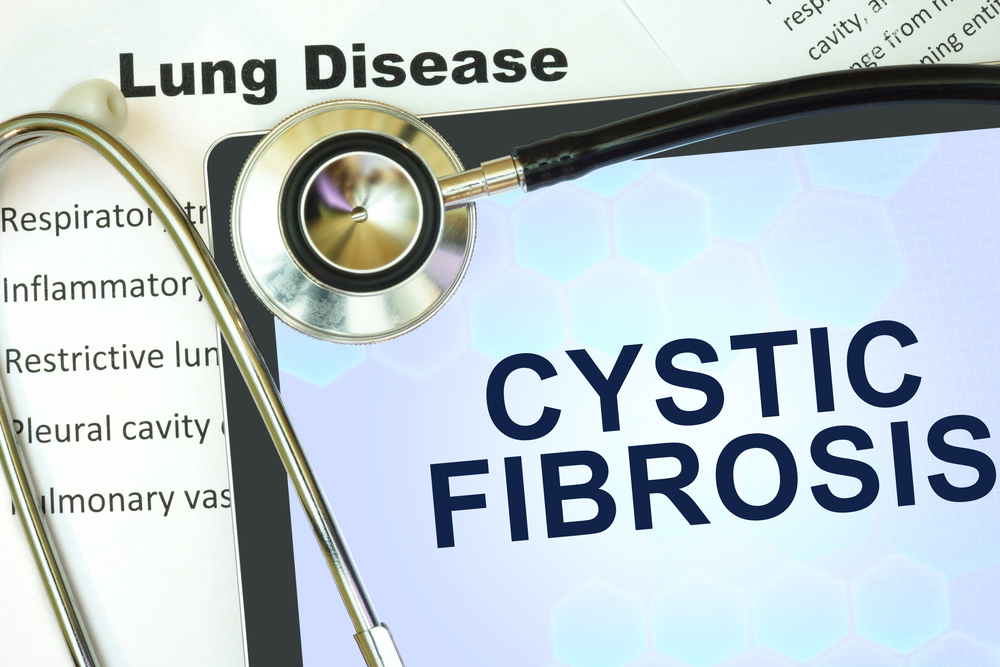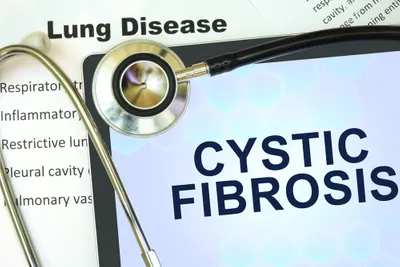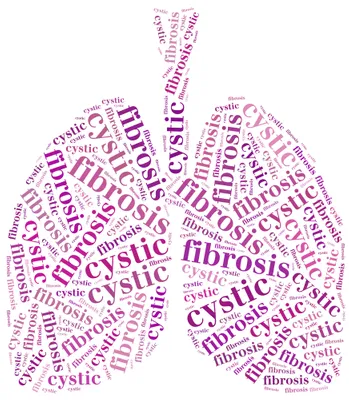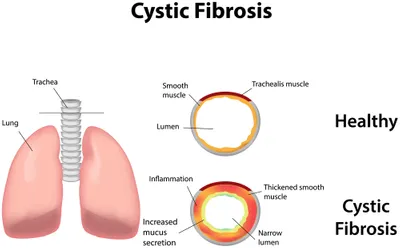Cystic Fibrosis, or CF as it’s commonly referred to, is a genetic disorder that affects the respiratory and digestive systems and is often fatal. While it’s a fairly well-known disease, there are only about 70,000 people living with CF in the entire world.
Those with CF often are mistaken for having a cold (from mucus buildup in the lungs) or an eating disorder, as it’s difficult to keep weight on due to the disorder. Here are 7 things to know about CF that might not be common knowledge…
1. It’s Not Just a Childhood Disease
CF has traditionally been typecast as a disorder of the young, however thanks to medical advances the life expectancy of a person with CF has raised. According to Cystic Fibrosis Canada, today almost 60-percent of all CF patients are adults.
CF Canada also helped support the production of a book called Salty Girls by Canadian photographer Ian Ross Pettigrew (and CF patient), which aims to raise awareness about adult females with CF. The book has since received international attention.
2. CF Patients have Salty Skin
If you were wondering what “salty girls” means, it’s a reference to a symptom of CF patients. In short, CF causes defective proteins responsible for making up sweat glands and linings inside major organs.
While salt usually helps carry moisture to the skin’s service (a.k.a. sweating) and is then reabsorbed, the salt stays on the skin’s surface of those with CF. This also leads to low salt levels in the body, which causes complications such as fatigue, stomach pain, and higher risk of heatstroke, according to WebMD.
3. Weight Loss is a Characteristic Symptom
CF can cause the buildup of mucus in the body that can block the ducts of the pancreas, which produces enzymes that break down food. While a CF patient may have a calorie-rich diet, their body does not properly absorb the nutrients, giving them the appearance of being undernourished.
However, patients can take enzyme replacements before eating a meal to aid in the digestion, according to Cystic Fibrosis Research Inc. (CFRI). Because key vitamins are also lost, many CF sufferers are on a regimen of supplements to ensure healthy levels.
4. It Causes Male Infertility
According to a posting on the U.S. Library of Medicine/National Institutes of Health, the “majority” of male CF patients are missing the vas deferens that transfers sperm from the testicles to the urethra. Because of this, semen of male CF patients does not contain sperm (which of course is essential in reproduction).
However, the posting goes on to explain, “ With the advent of assisted reproductive technologies, fertility is now possible for these men.” The National Institutes of Health advises genetic counseling for couples affected by CF who are looking to conceive through assisted reproduction.
5. It’s a Progressive Disease
While severity of the symptoms can vary from patient to patient, the disease is generally considered to be progressive, noted the Mayo Clinic. That means those who don’t show obvious signs of CF as a youth can develop telltale symptoms into adulthood.
The clinic noted that all 50 states now screen for CF in newborns, and that the disorder can be detected within the first month. There may be cases that are yet unaccounted for if the person was born before screening began.
6. Genetics Play a Major Role
CF is caused when both parents pass along an abnormal gene, according to Cystic Fibrosis Canada. About 1 in 25 people carry this abnormal gene, and the carriers do not have CF or its symptoms, adds the organization.
When both parents pass along this abnormal gene, there’s a 25-percent chance the child will have CF and a 50-percent chance the child will become a carrier. That leaves a 25-percent chance the child will be perfectly healthy and not be a carrier.
7. There is No Cure
The Mayo Clinic points out while there are several treatments and drugs for CF, there is currently no cure. Since the disease attacks the respiratory system, antibiotics can help fight off lung infections, according to the source. Manual drug-free therapy can also be applied daily to help loosen mucus in the lungs.
There are several other approaches to managing CF including exercise, diet counseling, as well as psychological and group support (as having CF and other major illnesses can lead to depression). The medical world can take treatment a step further with surgery to remove nasal obstructions, as well as insert a feeding tube to increase nutrition while you sleep. In some cases, lung transplants may be the last resort (and the clinic notes that CF does not affect transplanted lungs).










